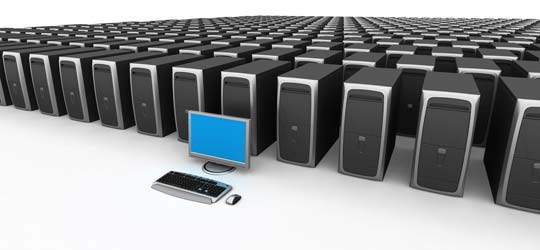
[image credit: all-free-download.com]
What type of hardware do you want? A server can come in the form of a dedicated server, which is pricey but powerful. Or you can pick up an older PC and turn it into a server – the specs for a fast server will not be as high or as expensive as the specs for a fast PC. A shared workstation is another solution, where one “central” user’s personal computer also plays server (a large capacity hard drive would be recommended for this).
How will data be stored? SATA and IDE hard drives are the most common, but a SCSI or RAID hard disk may be a good idea if you are going to be putting a lot of demands upon the server.
How much memory will it have? The more memory, the better. If you have a choice between upgrading the processor or upgrading the memory, upgrade the memory. You’ll get more bang for your buck, as memory is relied upon much more often than the processor is.
New or used? New can be a great choice if the server is a joint purchase, or a budget isn’t a concern. But if you need to watch every last dollar, consider a refurbished server. A refurb server is one that has been used, but returned to the original or a similar manufacturer for a complete inspection and certification of being in good working order. In most cases there’s no harm in going for used, as you’ll save a decent amount of money in doing so.



